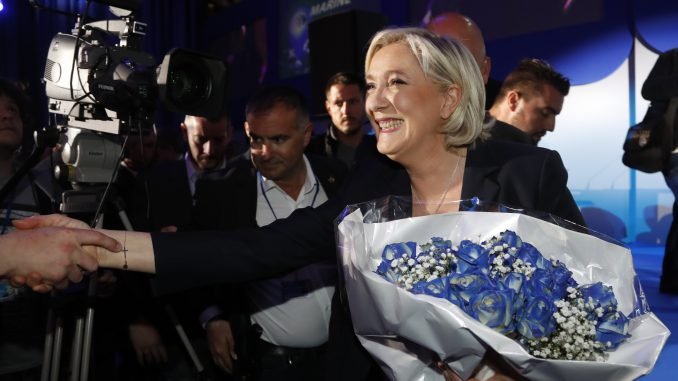
The Great Patriotic war ended 72 years ago but Moscow still “fights Fascism and Nazism”. The Kremlin sees signs of the mentioned evils everywhere. After the Soviet Union collapsed, Moscow accused (and continues to accuse) the Baltic States of “re-establishing Fascism and Nazism”. In fact, the main “sin” of Lithuania, Latvia, and Estonia, in this case, was the geopolitical distance themselves from Russia as much as possible. In 2014 the “Fascistic state” (from the Kremlin’s point of view) transferred to Ukraine.
It would be possible look at Moscow’s paranoid “fight against Nazism” as a kind of political peculiarity, if Kremlin did not show different values in its foreign policy. Here we find some paradoxes because the best friends of Russia in Europe are far right (or far left) nationalistic political powers.
After elections in Germany, protesters went to the streets with the slogan: “Nazis out!” (http://www.newsweek.com/nazis-out-germans-protest-far-right-afd-historic-third-place-result-670215). They protested against the far-right party “Alternative for Germany” (AfD) which won third place in the elections and for the first time will get seats in the Bundestag.
It is interesting that the AfD was the only political party, which made campaign advertising also in Russian. The target audience of the mentioned political advertisement was the Russian diaspora in Germany (about 4 million people). E.g. exhortation to vote for “Alternative…” broadcast by Kartina.TV, a Russian cable TV network in Germany. (https://newtimes.ru/articles/detail/119403).
Earlier the Kremlin hoped that presidential elections in France will be won by the head of the far-right “National Front” Marine Le Pen. By the way, the mentioned political party received financial support through a Czech bank associated with Russia in 2014.
Moscow also shows double standards in the topic of possible independence of some regions. On the one hand, Kremlin was against the independence of Chechnia and Kosovo. The dream of independence cost greatly for the Chechen nation. It was two Chechen wars in modern Russian history, totally destroyed Grozny city, many dead and injured etc.
On the other hand, Russia supports separatists in the Eastern part of Ukraine. It also loves the idea of Catalan independence. Russian TV correspondents displayed on live TV how to vote in the referendum which was not recognised by Spain. (https://twitter.com/JuliaDavisNews/status/914852373780148224). Later Moscow criticized Madrid’s rigorous reaction to the referendum and its results.
Should we be surprised by all the mentioned paradoxes? Actually, no. It no big secret that the Kremlin uses propaganda for its own purposes. The growing power of far-right or far-left parties, separatist conflicts and instability could create new great crisis in Europe. The Kremlin looks at the geopolitical situation in terms of a clash of civilizations. In such a situation, the worse it is for Europe – the better it is for Russia. From perspective, the Kremlin is ready to support any destructive actions in the Western World. Cold War principles return to the agenda.

Be the first to comment